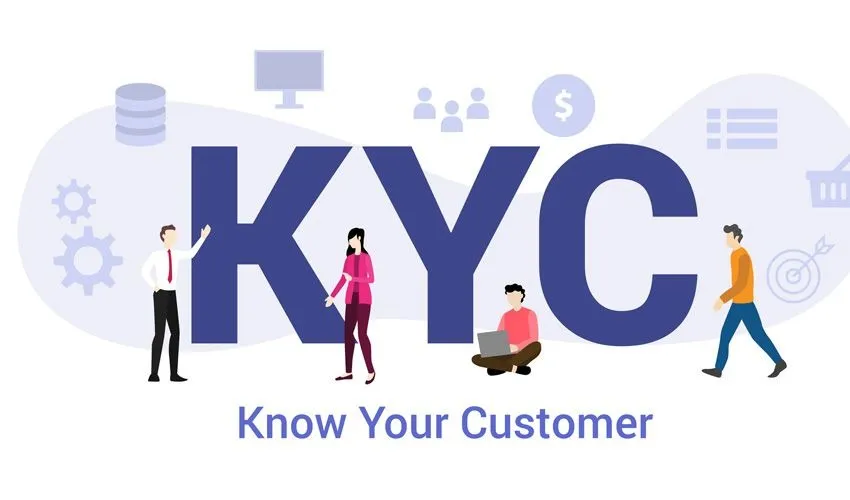
KYC Verification for Cryptocurrencies: Everything you need to know

The KYC (Know Your Customer) process has become common practice for many centralized crypto exchanges and financial institutions around the world. In this article, we will look at what KYC is, how it is implemented, why it is necessary, and discuss its impact on security and decentralization.
KYC - what is it?
KYC, or Know Your Customer, is a process that aims to establish the identity of a user in order to comply with legal regulations. This process requires customers to provide personal information such as residential address, full name, first name, middle name (surname), date of birth, and photo identification (such as a driver’s license or citizen’s passport). The main objective of KYC is to prevent terrorist financing, money laundering and other illegal activities. In the context of cryptocurrency exchanges, KYC has become a necessity, especially in light of the tightening of international standards regarding the regulation of digital assets.
How is the KYC verification process structured?
The KYC process typically consists of several basic steps:
1. Account registration
The user creates an account (account) on the platform.
2. Submission of documents
Uploading a photo of the citizen’s passport data, driver’s license or other official document confirming the user’s identity.
3. Confirmation of residence (address)
Most often, confirmation requires a bank statement or utility bill, where the name and address of the client will be indicated.
4. Selfies or video verification
Certain sites may require selfies with the document or participation in a video call with a staff member for additional identification.
5. Data verification
The platform verifies the validity of the documents and data provided. The process can take from a few minutes to a couple of days, this period depends on the complexity of the verification in the database.
Why do many exchanges require KYC verification?
The main reasons for implementing KYC on cryptocurrency centralized exchanges:
1. Legal compliance
Exchanges must strictly comply with local and international laws to avoid fines and penalties.
2. Anti-fraud.
KYC helps in identifying the identity of each user of the platform, which reduces the risk of financial crimes.
3. Enhancing trust.
Having KYC compliance improves the credibility and reputation of the exchange, making it safer for users.
4. Anti-Money Laundering.
KYC plays an important role in combating illegal financial transactions. Exchanges operating in highly regulated countries, such as the US and EU, must implement KYC to fully comply with all regulatory requirements.
The difference between KYC and AML?

KYC and AML (Anti-Money Laundering) are closely related but serve different functions:
- KYC is the process of collecting a customer’s personal information to confirm their identity.
- AML is a broader set of procedures that are designed to prevent and stop illegal transactions, including the detection of suspicious activity and transaction monitoring.
KYC is part of an overall AML policy. For example, once a cryptocurrency exchange has passed KYC, it will be able to use customer data to analyze transactions and track anomalous transactions.
Does KYC affect decentralization and anonymity?
KYC is controversial among advocates of decentralization and anonymity. The main points are:
1. limiting anonymity
KYC requires the disclosure of personal information, which goes against the principle of privacy inherent in cryptocurrencies.
2. Data centralization
Storing user data makes exchanges vulnerable to hacks and data breaches.
3. Decreased decentralization
Users are forced to trust centralized exchanges, which goes against the idea of decentralized finance.
Despite all this, KYC helps to increase security and reduce risks for market participants.
What are the risks of an exchange without KYC?
Exchanges without KYC may be attractive to those who want to maintain anonymity, but they come with risks:
1. Legal implications
Such exchanges can be shut down due to non-compliance with legislation.
2. High risk of fraud
Money laundering and fraud are more likely to occur on exchanges without KYC.
3- Lack of user protection
In case of disputes or theft of funds, it will be difficult for users to prove their rights.
4. Liquidity problems
Exchanges without KYC may have difficulty attracting large players due to low trust.
Exchanges with and without KYC verification
Exchanges with KYC:
– Binance
– Bybit
– OKX
– Gate. io
– BingX
– HTX
Exchanges without KYC:
- Uniswap (decentralized exchanges, or DEX)
- PancakeSwap (DEX).
Exchanges with KYC offer a higher degree of security and convenience, with platforms without KYC suitable for users who value anonymity but are willing to accept additional risks.
Pros and cons of KYC verification
Pros:
- Increased security and reduced risk of fraud.
- Ability to work on large and legitimate exchanges.
- Greater access to financial instruments.
Minuses:
- Loss of anonymity.
- Possibility of data leakage.
- Increased time for registration.
Who controls KYC in Russia?
In Russia, the KYC procedure is controlled at the legislative level. The main regulatory bodies are:
- Rosfinmonitoring
The body responsible for countering terrorist financing and money laundering.
- Bank of Russia
Controls financial organizations and exchanges implementing KYC.
- Federal Tax Service (FTS)
Controls the tax aspects of cryptocurrency transactions.
Exchanges operating in Russia are obliged to comply with all KYC requirements in order to comply with local legislation.
Conclusion
KYC is an important tool to improve the security and legitimacy of the cryptocurrency market. Despite criticism related to privacy breaches, KYC is becoming a standard that is essential to comply with laws and protect the interests of users. Before choosing an exchange, it’s important to consider your priorities: preserving personal safety and your funds, having anonymity and discretion, and whether the platform is compliant with the law.
Frequently Asked Questions (FAQ)
1. What is KYC?
KYC (Know Your Customer) is the process of establishing the identity of a customer to prevent unauthorized activities, including money laundering and support for terrorism.
2. Why KYC has become mandatory on centralized exchanges?
KYC has become a necessity due to increasing global regulatory measures in cryptocurrencies. It allows exchanges to comply with laws, protect users from fraud and increase trust from large investors.
3- Do I need KYC on the Veles platform?
To use the Veles platform, all you need to do is create an account using your email and password or through a Google account. Connection to the exchange is done via API and all personal data is securely protected in accordance with data protection legislation.
4. How does KYC affect anonymity?
KYC reduces anonymity by requiring personal data, which is against the principles of cryptocurrencies. But it increases the security of all platform participants and significantly reduces fraud risks.
5. What are the risks of exchanges without KYC?
The potential risks are the following: reduced user trust in the exchange, lack of protection, increased fraud and possible legal problems.